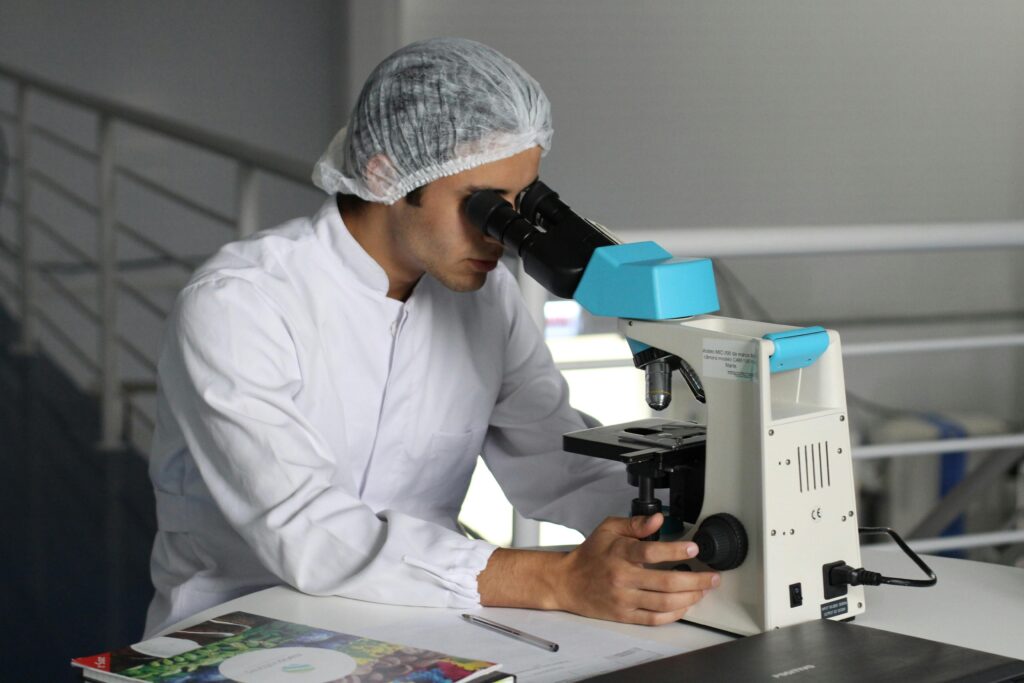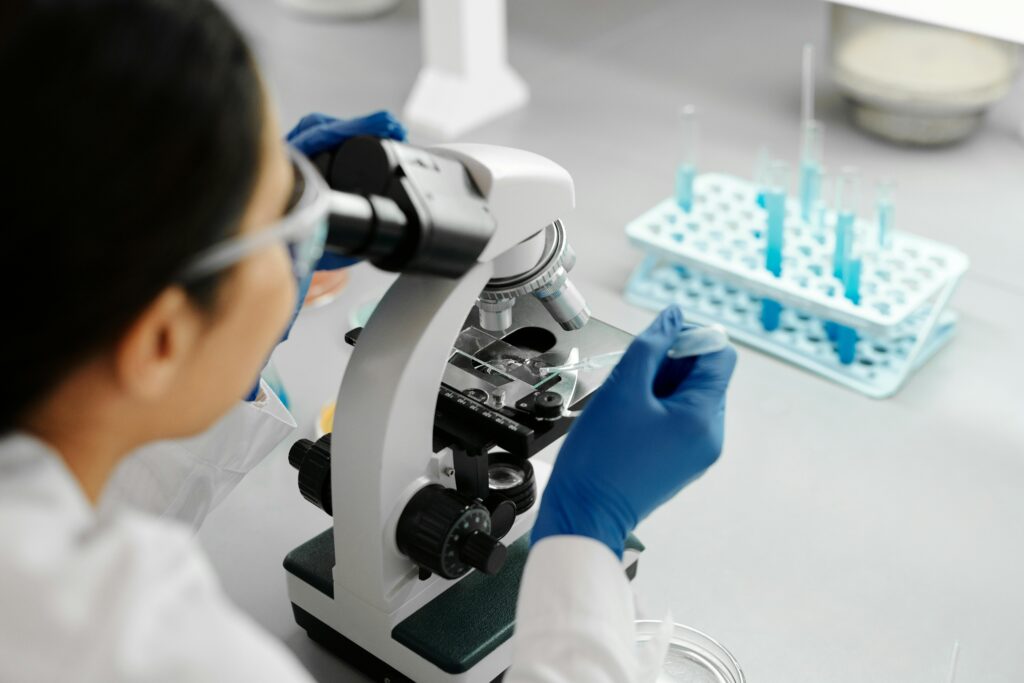A biology degree opens doors to a wide variety of careers in healthcare, research, environmental science, education, and even business. Whether you want to work in a lab, in the field, or in an office, a biology degree equips you with analytical, research, and problem-solving skills that are highly valued across industries.
In this guide, we’ll explore common career paths, salary ranges, and job outlook for biology graduates.
Healthcare & Medical Careers
Many biology graduates pursue roles in healthcare, often as a stepping stone to advanced degrees in medicine, dentistry, or nursing.
| Job Title | What They Do | Companies Hiring | Average Pay |
|---|---|---|---|
| Medical Laboratory Technician / Technologist | Conduct lab tests, analyze samples, and support patient diagnoses. | Mayo Clinic, Quest Diagnostics, LabCorp | $55K–$65K | Top Earners: $80K+ |
| Phlebotomist | Draw blood and prepare samples for testing in hospitals or clinics. | American Red Cross, HCA Healthcare, Kaiser Permanente | $35K–$45K |
| Genetic Counselor | Provide guidance on inherited conditions and genetic testing to patients and families. | Cleveland Clinic, Geisinger Health System, Myriad Genetics | $80K–$100K |
| Physician / Dentist / Pharmacist | Advanced medical roles requiring additional degrees; diagnose, treat, and manage patient care or dispense medication. | Hospital systems, private practices, retail pharmacies | $150K+ |
Research & Laboratory Careers
Biology degrees are ideal for careers in research and laboratory work.
| Job Title | What They Do | Companies Hiring | Average Pay |
|---|---|---|---|
| Biologist / Research Scientist | Study organisms, ecosystems, or molecular biology to advance scientific knowledge or applications. | NIH, Pfizer, University Research Labs | $60K–$85K |
| Microbiologist | Focus on bacteria, viruses, and microorganisms for healthcare, biotech, or industrial applications. | Merck, Gilead Sciences, FDA | $60K–$90K |
| Biochemist / Biophysicist | Analyze chemical and physical processes in living organisms, often in labs or biotech companies. | Amgen, Genentech, Thermo Fisher Scientific | $65K–$95K |
| Environmental Scientist | Monitor ecosystems, assess environmental impacts, and develop conservation plans. | EPA, Environmental Consulting Firms, State Environmental Agencies | $55K–$75K |
Education & Public Outreach
A biology degree can lead to teaching, science communication, or conservation outreach roles.
| Job Title | What They Do | Companies Hiring | Average Pay |
|---|---|---|---|
| High School Biology Teacher | Teach biology and related sciences at the secondary level. | Public and private schools, charter schools | $50K–$65K |
| Science Communicator / Writer | Create educational content, articles, and media to explain scientific topics. | Scientific journals, educational websites, museums | $45K–$70K |
| Museum or Zoo Educator | Lead tours, develop exhibits, and educate the public about science and wildlife. | Smithsonian, San Diego Zoo, Local Science Museums | $40K–$60K |
Corporate & Private Sector Opportunities
Biology graduates are also sought after in industries like biotech, pharmaceuticals, and environmental consulting.
| Job Title | What They Do | Companies Hiring | Average Pay |
|---|---|---|---|
| Quality Control Analyst | Ensure products and processes meet scientific and regulatory standards. | Pfizer, Johnson & Johnson, Biogen | $50K–$70K |
| Pharmaceutical Sales / Technical Representative | Use scientific knowledge to educate clients and promote products. | Novartis, Merck, AbbVie | $60K–$90K |
| Environmental Consultant | Advise companies on sustainability, compliance, and environmental impact. | ERM, AECOM, Tetra Tech | $55K–$85K |
Skills You’ll Gain With a Biology Degree

A biology degree goes far beyond memorizing textbook material — it equips you with a combination of technical, analytical, and soft skills that are highly valued in multiple industries. Employers often look for candidates who can apply biological knowledge to solve real-world problems, work with data, and communicate findings effectively.
Here’s a breakdown of the most important skills you’ll develop:
-
Advanced Analytical Thinking
You’ll learn to design experiments, interpret results, and draw evidence-based conclusions. This skill is crucial for careers in research, biotech, environmental science, healthcare, and even data analysis. -
Laboratory & Technical Skills
Expect hands-on training in techniques like PCR (polymerase chain reaction), gel electrophoresis, chromatography, microscopy, and cell culture. These skills prepare you for lab technician roles, research positions, and quality control jobs in pharmaceuticals or food science. -
Research & Scientific Writing
You’ll practice writing lab reports, grant proposals, and research papers — a skillset that transfers well to careers in medical writing, regulatory affairs, and academia. -
Data Analysis & Statistics
Many biology programs include biostatistics and data modeling, giving you the ability to work with large datasets — an increasingly valuable skill in biotech, epidemiology, and bioinformatics. -
Teamwork & Collaboration
Group projects and lab work teach you to collaborate with other scientists, technicians, and researchers — preparing you for cross-functional teams in corporate or academic research environments. -
Communication Skills
You’ll learn to present complex scientific findings in a clear way, whether through presentations, posters, or written publications — critical for science communication, education, and consulting roles. -
Critical Thinking & Problem-Solving
Biology graduates are trained to approach problems systematically, making them well-suited for roles in policy analysis, sustainability planning, and research & development (R&D).
Do You Need an Advanced Degree?
Whether you stop at a bachelor’s degree or continue to graduate school depends on your career goals:
-
Bachelor’s Degree Only:
Many jobs — like lab technician, environmental consultant, medical sales representative, and science writer — are accessible with just a bachelor’s. You can build experience quickly and move into supervisory or management roles over time. -
Master’s Degree (M.S.):
A master’s degree can open the door to more specialized roles like genetic counselor, wildlife biologist, or research scientist. It’s also valuable if you’re looking for higher pay or leadership positions in biotech, public health, or environmental management. -
Doctorate (Ph.D. or Professional Degree):
Required if you want to be a university professor, lead a research lab, or enter medicine, dentistry, veterinary medicine, or pharmacology. These degrees come with higher earning potential but require several additional years of study.
Job Market & Career Outlook

Biology-related careers are expected to grow steadily over the next decade, thanks to demand in healthcare, pharmaceuticals, and environmental sustainability.
According to the U.S. Bureau of Labor Statistics (BLS):
-
Healthcare & Medical Roles: Expected to grow 7–13% through 2032, adding thousands of new jobs in diagnostics, patient care, and laboratory testing.
-
Biotech & Pharmaceutical Jobs: Driven by genetic research, personalized medicine, and drug development, these roles are projected to grow faster than average, especially in biotech hubs like Boston, San Diego, and San Francisco.
-
Environmental & Conservation Careers: Jobs like environmental scientists and wildlife biologists are expected to grow 5–8%, fueled by global sustainability efforts and climate change initiatives.
Non-Traditional Career Paths
Not all biology graduates want to work in a lab or hospital — and you don’t have to. Your degree can take you into a variety of less traditional but equally rewarding fields:
-
Science Policy Advisor: Work with government or nonprofits to shape legislation on public health, biodiversity, or environmental protection.
-
Biotech Entrepreneur: Start your own company developing medical devices, sustainable food solutions, or biotechnology innovations.
-
Wildlife Conservationist: Work for organizations like WWF or Nature Conservancy to protect ecosystems and endangered species.
-
Medical Illustrator / Animator: Use your biology background to create visual content for textbooks, documentaries, and medical training programs.
-
Patent Examiner or Intellectual Property Specialist: Evaluate and protect new inventions in pharmaceuticals, biotech, and life sciences.
Tips for Landing a Job With a Biology Degree
Breaking into the job market is easier if you start planning early. At WiseWorq, we try to help with that with some basci insights to 26000+ companies in America. Here are practical steps to boost your chances:
-
Secure Internships Early: Lab or field internships give you experience that recruiters want to see on your resume.
-
Build a Portfolio: Keep samples of research posters, presentations, or published work — they can set you apart from other candidates.
-
Add Certifications: Programs like CLIA (for lab work), OSHA safety training, or bioinformatics certificates make you more competitive.
-
Leverage LinkedIn & Networking: Connect with alumni, attend industry events, and join professional associations like ASBMB (American Society for Biochemistry and Molecular Biology).
-
Consider Geographic Hotspots: Biotech jobs are concentrated in areas like Boston, San Diego, and RTP (North Carolina’s Research Triangle). Moving to a hub can boost your opportunities.


